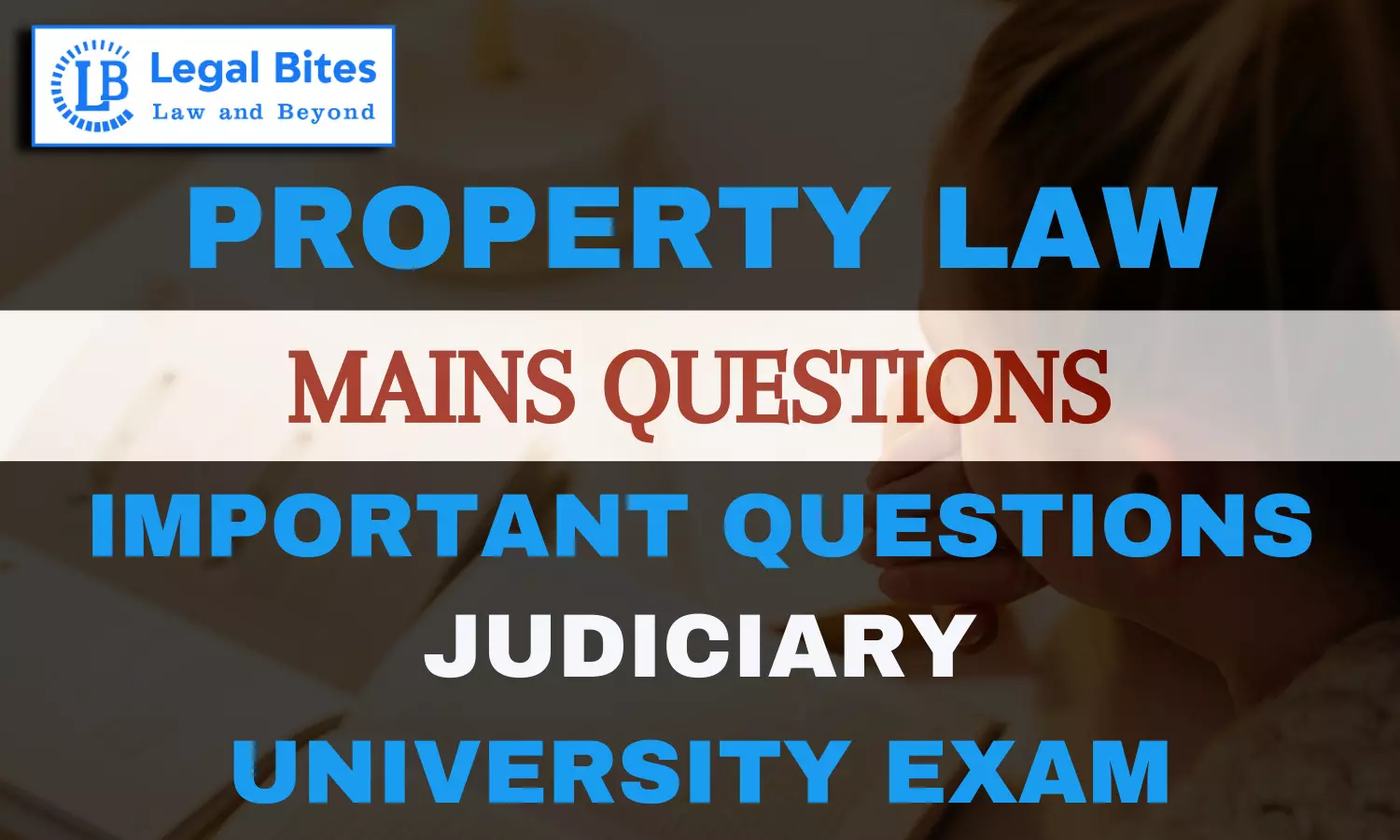What is the difference between a lease and a licence?
Find the answer to the mains question of Property Law only on Legal Bites.

Question: What is the difference between a lease and a licence? [MPJS 2021]Find the answer to the mains question of Property Law only on Legal Bites. [What is the difference between a lease and a licence?]AnswerA lease creates an interest in the property and grants exclusive possession to the lessee for a specific term while License grants permission to use the property without transferring any interest in the property. The key differences between a lease and a license are as...
Question: What is the difference between a lease and a licence? [MPJS 2021]
Find the answer to the mains question of Property Law only on Legal Bites. [What is the difference between a lease and a licence?]
Answer
A lease creates an interest in the property and grants exclusive possession to the lessee for a specific term while License grants permission to use the property without transferring any interest in the property. The key differences between a lease and a license are as follows:
1. Definition:
Lease (Section 105 of the Transfer of Property Act, 1882):
A lease is defined as a transfer of the right to enjoy immovable property for a certain time, express or implied, in exchange for a price paid or promised, or money, or a share of crops or service or any other thing of value to be rendered periodically or on specified occasions to the transferor by the transferee.
License (Section 52 of the Indian Easements Act, 1882):
A license is defined as permission by one person to another to do something on the grantor's immovable property which would otherwise be unlawful. A license does not amount to the transfer of an interest in the property.
2. Creation of Interest:
Lease (Section 105):
A lease creates an interest in the immovable property in favor of the lessee. The lessee acquires the right to exclusive possession and use of the property for the term of the lease.
License (Section 52 of the Indian Easements Act):
A license does not create any interest in the property. The licensee is only allowed to use the property, and the ownership and control remain with the licensor.
3. Transferability:
Lease (Section 108(j)):
A lessee has the right to transfer, assign, or sub-let the lease unless there is a contrary provision in the lease deed.
License (Section 56 of the Indian Easements Act):
A license is generally non-transferable and non-assignable. It is personal to the licensee and comes to an end upon the death of either the licensee or the licensor.
4. Exclusive Possession:
Lease (Section 108(b)):
The lessee is entitled to exclusive possession of the leased property, meaning the lessor cannot interfere with the lessee’s possession during the lease term.
License:
A licensee does not get exclusive possession. The licensor retains possession and control, and the licensee can only use the property as per the terms of the license agreement.
5. Duration and Revocation:
Lease (Section 111):
A lease is created for a specific term (fixed or periodic) and can only be terminated as per the terms specified in the agreement or upon violation of conditions. It cannot be revoked unilaterally by the lessor unless stipulated in the lease deed or in case of breach.
License (Section 60 of the Indian Easements Act):
A license is typically revocable at the will of the licensor unless it is coupled with a grant or interest or made irrevocable by an express agreement.
6. Registration Requirement:
Lease (Section 107):
A lease of immovable property for a period exceeding 12 months must be registered. If not registered, it cannot be enforced in a court of law.
License:
There is no mandatory requirement under the law for the registration of a license agreement, although parties may opt for it to document the terms.
7. Legal Rights and Remedies:
Lease (Section 108):
The lessee has the right to defend his possession and to enjoy the property free from any interruptions from the lessor. If unlawfully evicted, the lessee can approach the court for legal remedies like reinstatement.
License (Section 63 of the Indian Easements Act):
A licensee has no legal remedy if the license is revoked, unless the license is irrevocable. Since no interest in the property is transferred, the licensor can lawfully eject the licensee after revocation.
8. Termination:
Lease (Section 111):
A lease can terminate by efflux of time, notice, breach of condition, or express terms agreed upon in the contract.
License (Section 61 of the Indian Easements Act):
A license is terminated when the purpose for which it was granted is fulfilled or the property is destroyed, or by death of the licensor or licensee unless the license is irrevocable.

Mayank Shekhar
Mayank is an alumnus of the prestigious Faculty of Law, Delhi University. Under his leadership, Legal Bites has been researching and developing resources through blogging, educational resources, competitions, and seminars.
